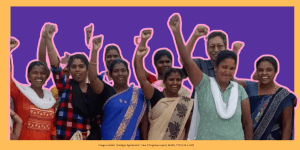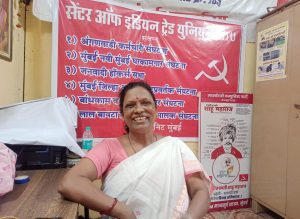How A Trade Unionist Used Art To Power Her Unique Trade Union Journey
Culture is a powerful medium to collectivise and empower the working class, says the veteran union leader
- Priyanka Tupe
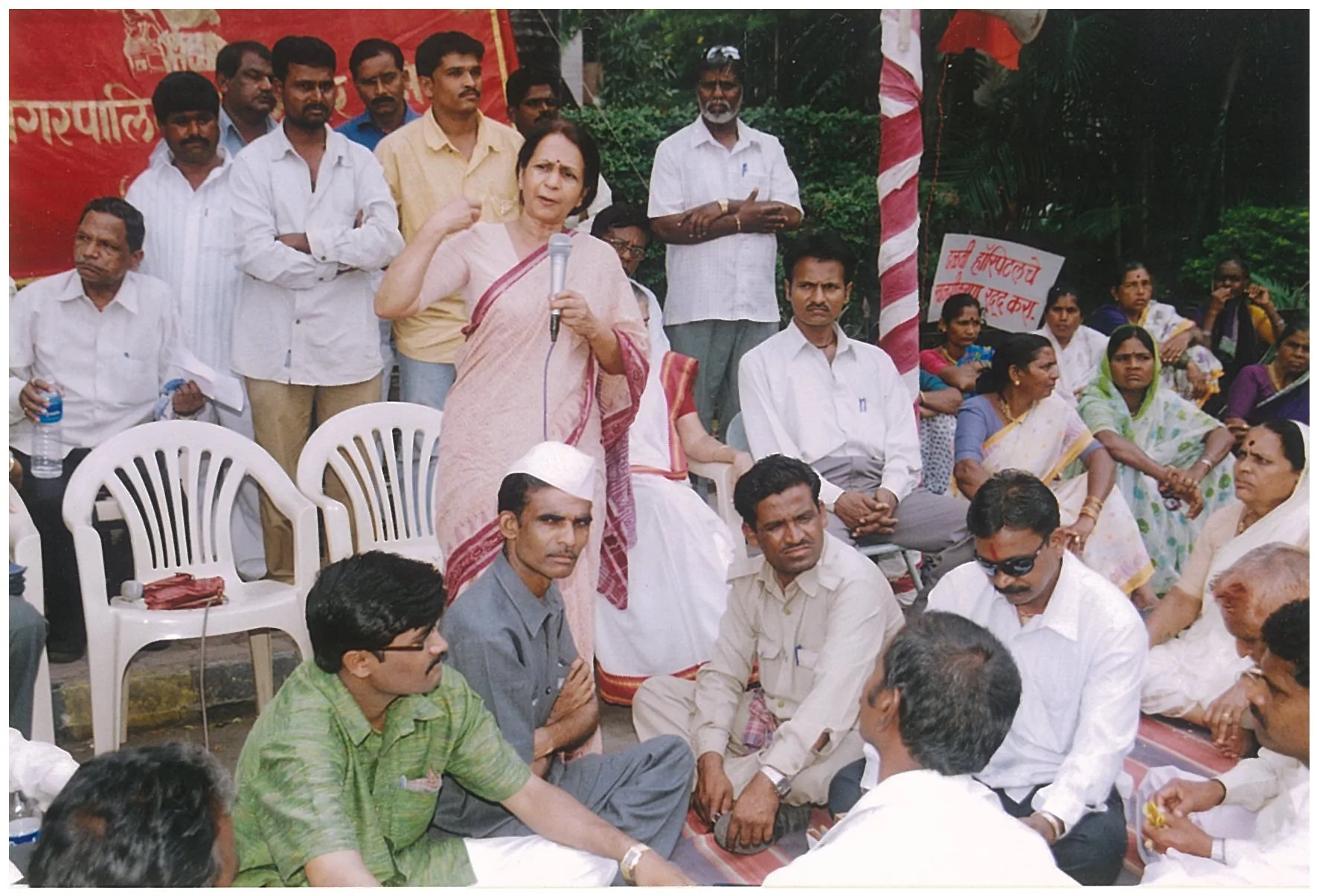
“Comrade Mukta Manohar — General Secretary, Pune Mahanagarpalika Kamgar Union”, states the nameplate outside the door of an office room at Shramik Bhavan in central Pune. Those are few words but they encompass 40 years of exceptional work in collectivising corporation workers.
It was a muggy September morning when we met Mukta Manohar, 72. A diminutive figure dressed in a simple cotton salwar suit she had recently been treated successfully for breast cancer. But neither her health nor her age can keep her from work.
“Well, 72 is not all that old,” she said with a chuckle. “And trade union work is everything to me. It is the workers who bring colour into my life and I am committed to doing all I can for as long as I live. I tire more easily now but union members take care of all my needs. They are lovely, not just the union members, but all the people with whom I developed a personal relationship over years.”
Manohar is a rather unusual union leader. She has mobilised workers, led agitations, held marches and negotiated hard for labour rights but she is equally known for using literature, theatre and cinema to give a voice to those in the margins. She is an avid fan of vocalist Kishori Amonkar’s music, an ardent cinephile and a theatre enthusiast. Her non-fiction book in Marathi, Nagnasatya (the naked truth), published in 2011 is a landmark work on patriarchy and sexual violence and their intersections with the State and judiciary.
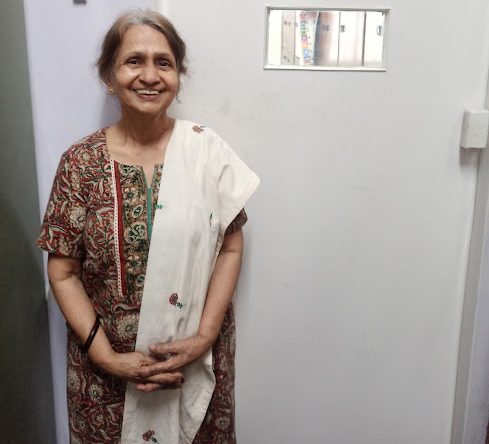
Manohar’s most acclaimed cultural intervention remains the 2007 production of Satyashodhak, a play written by Govind Purushottam Deshpande. Based on the life of Maharashtra’s 19th century social reformers, Jotirao and Savitribai Phule, the play is about casteism, segregation of labour, sexism and other social issues.

“The arts are an important tool to build cultural and political consciousness,” she says.
Films are another passion and Manohar often organises screenings at the trade union office for sanitation workers. A couple of months ago, she organised the screening of Ticha Shahar Hona (the city personified), a Marathi film directed by Rasika Aagashe, at Pune’s Mangala Theater. She booked an entire theatre hall and watched it along with nearly 300 women sanitation workers who are members of the municipality workers’ union.
“It was about how working women perceive a city. Who are these women? How are they finding their place in the city? Working-class women often can’t afford to watch films and they don’t have leisure time like us, but when we organise screenings, they are very excited,” she said.
This is the second profile in our new series on women trade union leaders; the first featured Anganwadi union head Sangeeta Kamble. Trade unions have had a pivotal role to play in shaping our labour laws and workers’ rights. As labour rights dwindle, women union leaders are at the forefront of the struggles. But they remain largely invisible and unrecognised. Through this series we hope to accord them a rightful place in history.
Manohar is a critical figure in the trade union space because she has empowered Pune’s sanitation workers in unheard-of ways. Today the union has 14,000 members and of them 8,000 are women from across departments and this includes officers and engineers as well. The collective’s bargaining power is immense and its demands are rarely ignored by the administration.
Manohar also widened her feminist perspective to include survivors of domestic abuse with her work in the Shramik Mahila Morcha.
‘My Inspiration – Working Class Women’
“Working class women, with all their commitment and wisdom, have always been my inspiration – the sweepers, domestic workers. Their love and work sustains me, keeps me fighting,” said Manohar. She cites the example of Tarabai Sonawane, a sweeper and a powerful woman who accompanied anti-caste crusader Gail Omvedt to attend protests and feminist conclaves for many years.
Twenty five years ago, a safai karmachari (sanitation worker) and union member had run to her in agitation with the news that a busload of young women workers from a private company had been taken to the Yerawada Jail. What followed left a deep impact on her work.
“They had been striking work for better pay and since the company ignored them they went to the chief minister’s residence to gherao him and present a charter of demands. They were immediately arrested and brought to jail. The company pressed them to sign a bond agreeing never to protest again but one young girl refused because she believed she had done no wrong. I can’t forget her face. It is women like these who make this world a better place,” said Manohar.
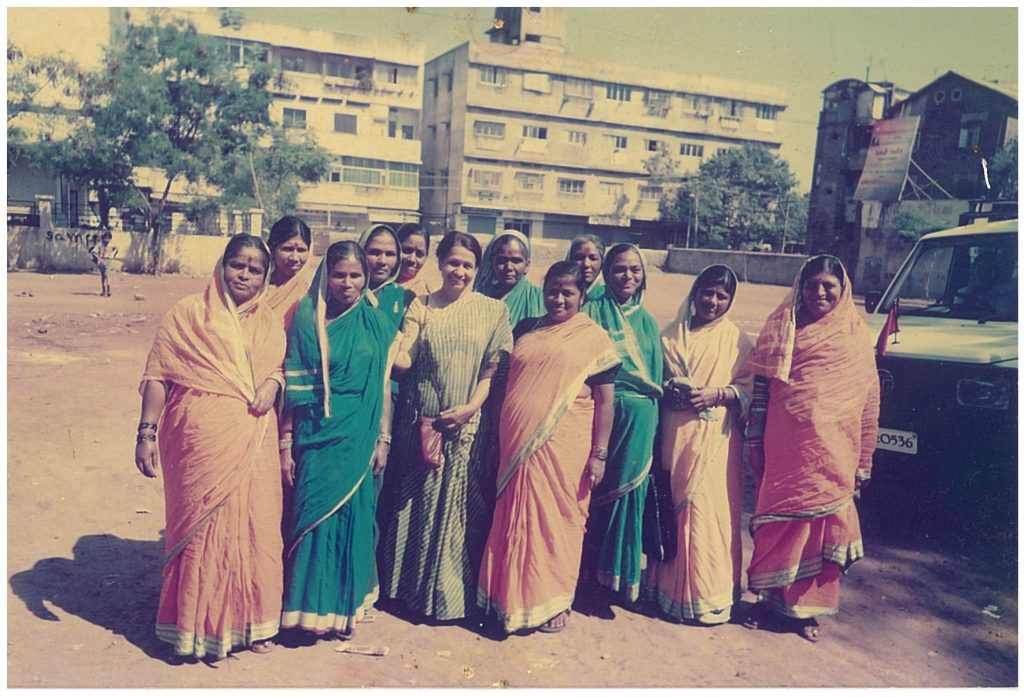
The activist’s early life experiences had a big role in shaping her progressive views. Born in Nashik, she comes from a conservative family presided over by her father, a government servant who held a transferable job. She recalled that he would not let her mother take on a job and was furious with her sister for picking a partner outside the region.
“My father was a sanghi, which I hated. My elder sister fell in love with and married a Punjabi guy who was a nice man but his family abused us verbally and that affected us. It left my father a very angry man who would place a lot of restrictions on me. I rebelled, I never wanted to live a typical life, secure a trophy husband. I made it clear that I would choose my partner on my terms,” she said.
By the time she was 25, Manohar started writing for the Marathi magazine Bayaja dedicated to rural, Dalit and Adivasi women.
Pune, 1970s: A City Of Activist Fervour
In 1973 Manohar moved to Pune from Dhule, where her family was stationed. She walked out for two reasons: one, to become financially independent and then to rebel against her family’s efforts to push her into an arranged marriage. She took on some small jobs in the city but it was Pune’s activists who revolutionised her life: there was Vidya Bal, the founder-editor of the feminist magazine Miloon Saryajani, and leftist leader Leelatai Bhosale who worked with the Shramik Mahila Morcha.
The 70s decade saw the feminist movement taking wings in India and Manohar met the “Magova group” – a team of young leftist intellectuals formed by the renowned Marxist thinker Sudhir Bedekar along with activists such as Kumar Shiralkar, Ashok Manohar and others. The group’s name was derived from the Marathi magazine it produced, Magova. This group was also engaged in the Shahada movement, a land rights campaign to help the Adivasis and farmers of north Maharashtra.
Ashok Manohar went on to become her partner. “I was looking for someone who is not a typical ‘man’ but somebody who was passionate about the values that I too believe in. I found Ashok [Manohar], a dear comrade, and the love of my life,” she recalled. He introduced her to the lives of the working class, Marxism, and people’s movements. He also pulled her into the Shahada movement.
“I started going to Shahada, a predominantly tribal tehsil in Nandurbar district and it was an eye-opener. I started understanding their issues, the deprivations they faced. We were all driven by the urge to challenge structural inequalities even if it meant hard work and agitation and perhaps, even jail. Making posters, shouting slogans, singing revolutionary songs at protest marches, all this was very thrilling for me,” said Manohar.
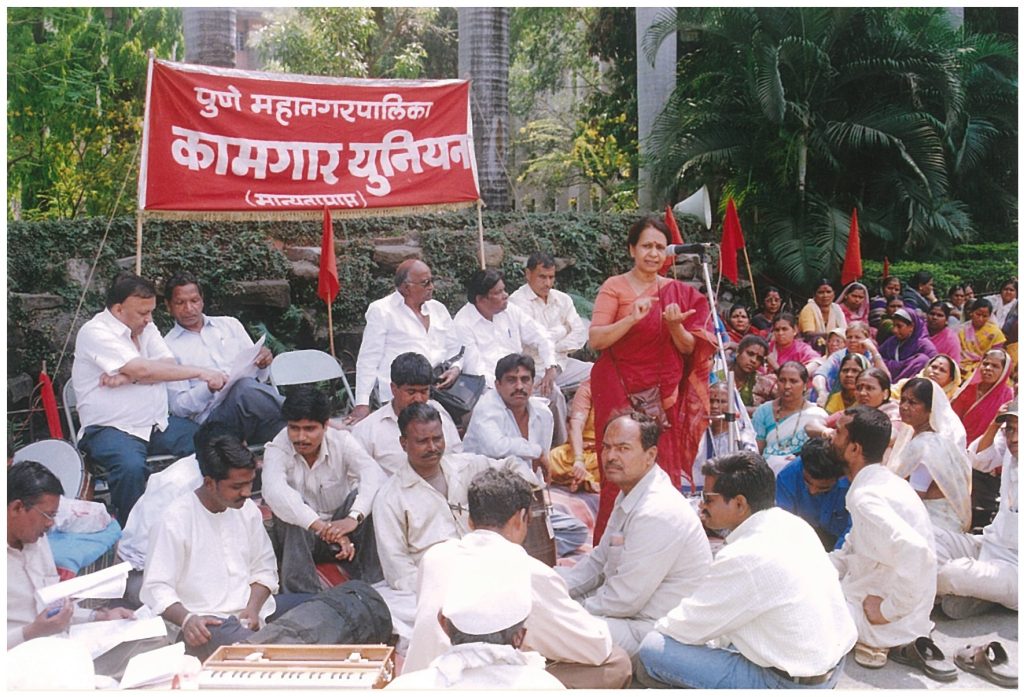
In 1983, the activist joined the Pune Mahanagarpalika Kamgar Union which was founded by Bhau Phatak, a leader of the Lal Nishan Party (Leninist) in 1943 and later featured leaders such as Susheela Kulkarni, Aappasaheb Bhosale, Prabhakar Gokhale. Manohar’s work at the union revealed to her the larger canvas of the lives of municipal workers, most of whom were on contracts – sweepers, sewage workers, those who handled solid waste management and so on.
Unionise, Unionise
At the corporation union, Manohar started organising the workers and conducting meetings with stakeholders like corporators, labour commissioners and the officials of the corporation. These meetings were conducted mostly to inform government stakeholders about the working conditions and safety issues of sanitation workers and negotiate better conditions.
“We work for workers’ rights but it’s a government-recognised union so there are certain rules and regulations. For example, workers can’t go on a spontaneous strike. We have meetings and rounds of discussions, and then we submit our demands and if these are still ignored we plan an agitation. But we have now come to a stage where government stakeholders can’t ignore our demands easily because of the power of unionising,” said Manohar.
With her at the helm, PMC workers have fought for several rights – safety kits, free government housing under the Shramsafalya scheme for sanitation workers who had completed 25 years of their service. The union has fought exploitative work rules. Earlier, women sweepers had to mark their attendance with their supervisors four times a day – once, when they began sweeping the roads early in the morning, then after they had finished their task, the third time when they returned from their break and finally, when they completed their day’s work. This was tiresome for the workers, especially women.
“Women are traditionally burdened with household responsibilities, and then they come to work and deal with these practices, unsafe work environments and low salaries. This jeopardised their mental and physical well-being, so we agitated and had the attendance reduced to a two-step process,” she said.
During the recent pandemic, the union helped the 13 families of contractual sanitation workers who died of COVID. “The Pune Municipal Corporation gave no compensation, nor did it extend support to families. So we collectively decided and helped these families with Rs 1 lakh each,” said Manohar.
The Shramik Mahila Morcha mostly represents domestic workers and unorganised sector workers who routinely deal with domestic violence, sexual violence, and dowry harassment. “If we couldn’t resolve the issue through dialogue, we organised protests. I remember a dowry case from rural Pune, some 25 years ago. The young woman’s mother came to us and we mobilised, went and spoke to her in-laws and demanded that the young woman be given back all the money and gold she brought from her maternal home. We agitated till they did it so she could survive independently,” said Manohar.
Satyashodhak: Revolutionary Play
As we said, culture is Manohar’s favoured tool for empowering marginalised groups. She was the production-in-charge of the GP Deshpande play, Satyashodhak. Veteran theater director Atul Pethe who is known for his experimental socio-political plays approached her with the script and asked if could direct the play for and with union members. Manohar loved the idea and proposed it to the union which decided to produce the play. It was a huge success and the team organised 118 performances across India and at international theatre festivals. Up to 80% of the cast was made up of PMC’s sanitation workers and union members.
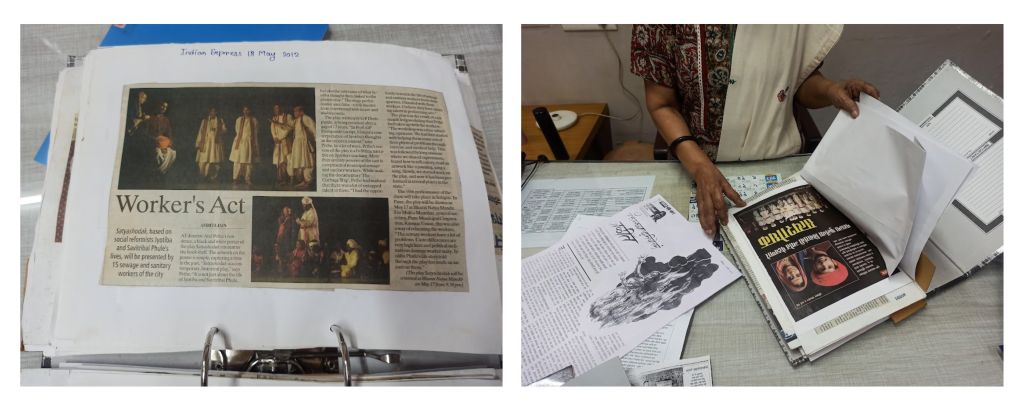
“Satyashodhak received both huge support and criticism [for its casting]. It was very challenging to train sanitation workers for theatre because their lives were so distant from the stage. Forget performing, they don’t even get the time, money or opportunity to visit a theatre to watch plays. But Atul Pethe pulled it off, he was very patient with all workers, hosting workshops for them,” said Manohar.
Among those whose lives she enriched through the arts is Sandeep More, a sanitation worker with Pune municipal corporation and a member of the union. He had met her 12 years ago, when he was a safai karmachari and also studying for his Masters degree. The meeting changed his life.
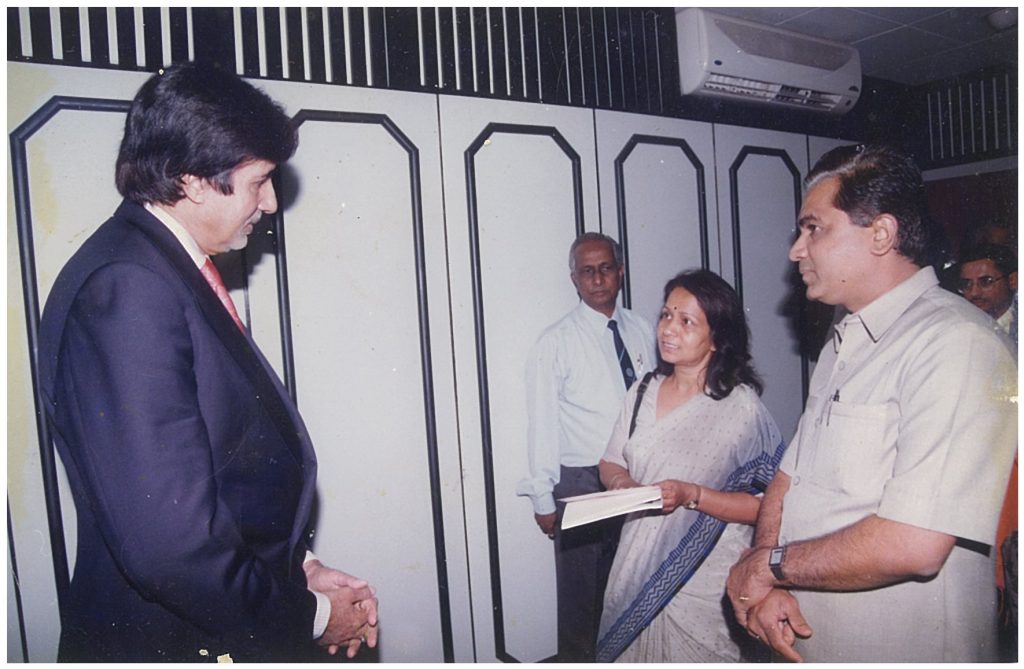
“She questioned me closely about my education, hobbies, and so on and then I got an opportunity to act in Satyashodhak. At the time, I was also working on the housing issues of sanitation workers in the union under her leadership. All this ate into my work time and there was every chance I would have suffered a wage cut,” recalled More. Manohar stepped in and proposed to the PMC that all sanitation workers who were in Satyashodhak be paid full salaries even if they were performing during duty hours. “It’s her and the union’s power that PMC agreed to this. Otherwise, theatre would have been beyond us for economic reasons,” pointed out More.
Pethe recalled meeting Manohar after the screening of his 2007 documentary ‘SEZs, A Prelude to Anarchy’. She had asked if he would do a film on the lives of sewage workers.
“I was naive at the time and as a middle-class filmmaker I thought I could make a nice film with beautiful shots. But the time I spent with Mukta and the sanitation workers opened my eyes to a world I knew nothing about. After I went down into the gutters one day to experience the world of these workers, I could not eat for days. She showed me this world of caste oppression, deprivation, poverty, and filth. My point of view and even my voice has changed completely since then,” said Pethe.
The film, Kacharakondi (the waste trap), which Pethe thought would be a quickie, took eight months. It was screened across the state, in schools, colleges, residential complexes and even the state assembly. It was also distributed as a DVD.
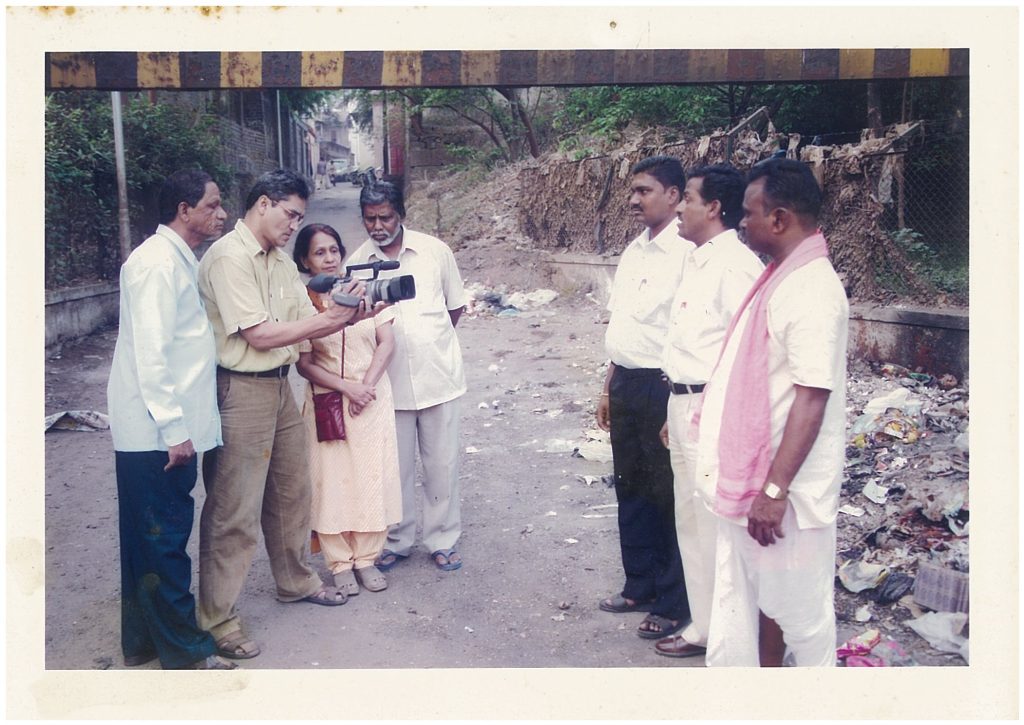
Five years ago, Manohar founded the Satyashodhak Yuva Manch for the children of union members. She also scripted a play, Galileo, on the life of the astronomer, that was performed by the children of union members. The pandemic ended the shows. It was a small production with youngsters reading the play in a theatrical style. “I wanted to create a space for the next generation. Many of the workers are good musicians but don’t get any cultural space because they have no education or resources. When I see their talented children I feel at least I can do something for them,” she says.
Her sense of humour, empathy and easy communication style connect instantly with young people. She created the Krantiveer Bhagat Singh Brigade, an initiative to help the children of Maharashtra’s sanitation workers find employment. She also pulled together the Maharashtra State All Workers Collective, a network of trade unions and mass organisations.
For all this work, Manohar is now finding it hard to be optimistic about the future of trade unions.
“Organising workers has become challenging today. Everything is getting privatised, and big corporations don’t care about the welfare of labourers and laws. Workers everywhere have to sign exploitative contracts, unionisation is banned. On the other hand, increasing unemployment is compelling people to take on any kind of work without any organisational support. Religious hatred and divisive politics are other challenges, but dialogue is the only solution,” she said.
We believe everyone deserves equal access to accurate news. Support from our readers enables us to keep our journalism open and free for everyone, all over the world.
